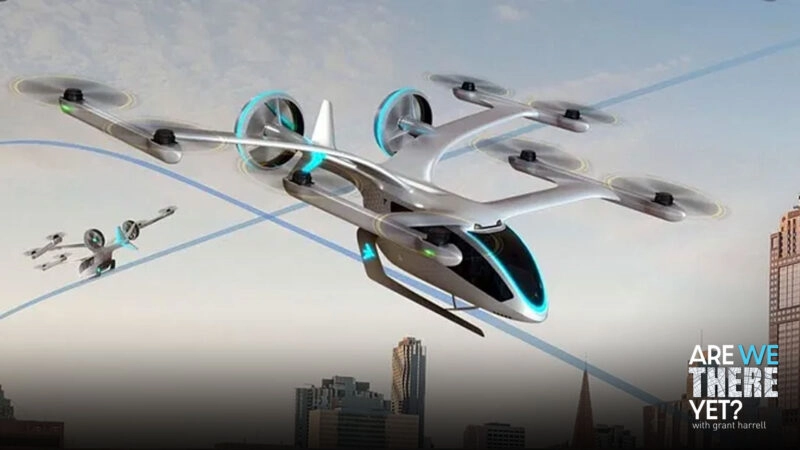Hydrogen-Powered Aircrafts Could be the Solution for Zero-Carbon Air Travel. Is the Solution Green Enough?
The aviation industry stands on the cusp of a green revolution, with hydrogen-powered aircrafts emerging as a beacon of hope. While the concept is tantalizing, the real challenge lies in determining the true environmental impact of this hydrogen.
NASA, with its rich history in hydrogen propulsion from space programs, is spearheading efforts to harness this potential, aiming to bring together the brightest minds from aerospace companies. In 2019, NASA initiated the CHEETA project, aiming to develop an all-electric aircraft platform for sustainable aviation, with a focus on cryogenic hydrogen. This move comes amidst forecasts predicting a 90% surge in US air travel over the next two decades, potentially pushing the aviation industry’s global emissions contribution to 20% by 2050. European aviation leader, Airbus, has also embarked on a similar path, launching the ASCEND program in 2021 to explore the benefits of liquid hydrogen.
However, the journey is fraught with scientific and technical questions, from the complexities of storing liquid hydrogen to the debate between direct combustion and fuel cells. As startups globally race to retrofit existing aircraft with green solutions, the industry also needs solutions for managing long-haul flights, building refueling infrastructure and ensuring a sustainable hydrogen supply chain. Amidst these challenges, the question remains: How green is our green solution? Charles Alcock, Senior Editor for Aviation International News, suggests there are still major challenges in the pursuit to successfully build and adopt hydrogen-powered aircrafts on a broad scale and, ultimately, stop aviation pollution.
Charles’s Thoughts:
The Greenness of Hydrogen
“One of the wider debates is, okay, fine, you’ve figured out how to use hydrogen to power an aircraft, how green is that hydrogen? You know, has that hydrogen been produced in a way that isn’t in and of itself?”
NASA’s Role in Hydrogen Propulsion
“It’s very exciting that NASA is taking the lead at this critical stage in the aviation sector’s efforts to explore the huge potential of hydrogen propulsion. And that’s gonna be a key step in decarbonizing air transport. It’s appropriate that NASA’s involved because, of course, it has huge experience in hydrogen propulsion with the space programs. And NASA also has both the funding and the credibility to act as kind of a crucible to bring aerospace companies together in this work in a way that will actually move progress forward meaningfully.”
Long-term Commitment and Challenges
“Now, it’s important to keep in mind, this is a long-term project. The research project they’re starting now is part of at least a decade-long effort to get hydrogen-powered aircraft into viable commercial service. And it’s not so much that there are obstacles in the way, there are certain key questions that need to be resolved, scientific, technical questions.”
Liquid vs. Gaseous Hydrogen
“So, starting with the use of hydrogen, look at it in terms of, you can either use liquid hydrogen fuel or you can use gaseous hydrogen fuel. Those are very different in how they’re actually applied. So, many people, including NASA, feel that liquid hydrogen makes more sense. It has a higher energy output than gaseous hydrogen, which is very significant in terms of the range and the payload that these aircraft can carry.”
Storage Challenges
“But it brings with it certain challenges, most of which revolves around how you store it. So, liquid hydrogen has to be kept very, very cold to be viable, and that brings with it some very complex thermal management tasks. How do you keep something at a constant temperature when all around it you’ve got, you know, things running at different temperatures that could compromise that? And that’s one of the key things that NASA and its partners are gonna have to resolve. On the other hand, you know, there are perhaps more easily identifiable ways to store gaseous hydrogen, but it won’t deliver enough power.”
Combustion vs. Fuel Cells
“Now, the other debate in hydrogen propulsion is between, okay, do you go for what’s called direct combustion, where the engines on the aircraft directly burn the hydrogen as fuel, just as today they burn fossil fuel? Or, as many people are now exploring, do you instead use hydrogen in combination with what’s called a fuel cell to essentially create electricity to drive electric motors?”
Startups and Conversion of Existing Aircraft
“Now, at the same time that NASA is leading this work, there are a lot of young startup companies around the world who are developing fuel cell powertrains that could convert existing aircraft, not new aircraft, existing aircraft, to use hydrogen to become electric aircraft. That’s very exciting, too, because they’re taking some aircraft that, you know, many of us in the industry have thought were, or well since, you know, beyond their useful life, and reinvigorating those as green aircraft, let’s say. But, of course, the hydrogen fuel cells are not without their challenges, too. Some of the companies who are involved in that, a couple of American companies, Universal Hydrogen and Zero Avia, they’re making quite significant progress. In Europe, there’s a lot happening, too. We’ve got some startups there who are trying to convert existing aircraft to hydrogen.”
Hydrogen Production and Carbon Emissions
“One of the wider debates is, okay, fine, you’ve figured out how to use hydrogen to power an aircraft, how green is that hydrogen? You know, has that hydrogen been produced in a way that isn’t in and of itself generating excessive carbon emissions? And there are ways to do this. I mean, for example, there are people who’ve figured out how to make hydrogen from tidal energy, from wind energy, which is obviously a very green form of hydrogen indeed.”
Supply Chain Challenges
“And then, since I’ve been asked about challenges, even if you can figure all of that out, you then need to come up with a way for the aviation industry to have a sufficiently assured supply chain of hydrogen fuel at every airport where these aircraft are going to operate. And that’s a massive headache, to be honest with you. Even when the eggheads at NASA have figured out how to safely burn liquid hydrogen, that task is still going to be hanging out there as well.”
European Efforts
“In the United States, NASA is clearly the leader, but in Europe, there’s a lot of work going into this, a lot of European Commission-funded work to advance hydrogen-powered aircraft. And at the forefront of a lot of that is Airbus, which is the great rival to the American Boeing company.”
Airbus’s Zero-E Plan
“And it has a plan called Zero-E, which is aiming to have, let’s say, a 200-seat airliner powered by hydrogen operating, flying around 2035. So there’s a lot going on, and NASA is certainly at the fulcrum of a lot of it.”
Recent Posts

It’s time once again for Woodstock for aviation enthusiasts. Charles Alcock, Senior Editor with AIN Media Group, highlights the unique charm of the annual AirVenture Show held in Oshkosh, Wisconsin. The event, organized by the EAA (Experimental Aircraft Association), showcases the pinnacle of aviation excellence, from major industry players like Boeing to small entrepreneurs…

The sky is the limit for future transportation, and in fact, not even limited there! In this latest episode of MarketScale’s Are We There Yet? video podcast series, Host Grant Harrell speaks with the Senior Editor of AIN (Aviation International News) Media Group and FutureFlight, Charles Alcock. Charles provides key insights into the evolving…





